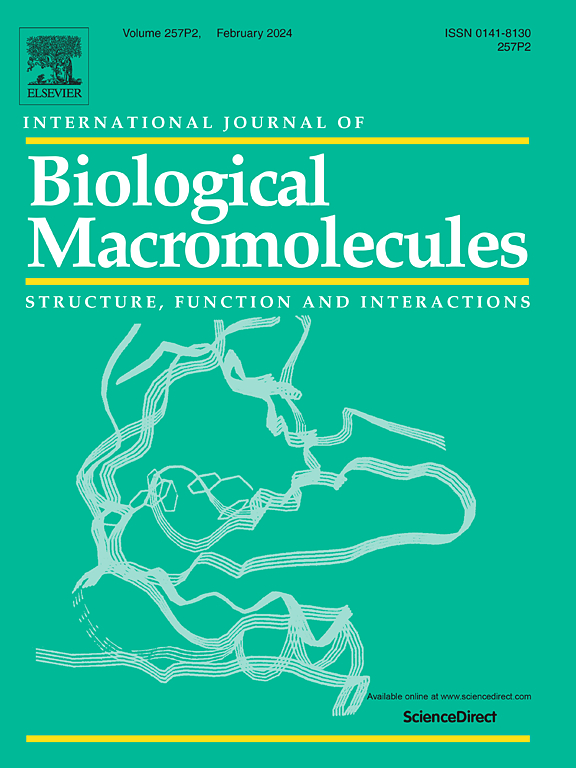Impact of ultra-high pressure on the microstructure, emulsification, and physicochemical properties of rice starch
IF 7.7
1区 化学
Q1 BIOCHEMISTRY & MOLECULAR BIOLOGY
International Journal of Biological Macromolecules
Pub Date : 2024-12-01
DOI:10.1016/j.ijbiomac.2024.137919
引用次数: 0
Abstract
Ultra-high pressure (UHP) treatment is considered a non-thermo physical treatment technology with a “clean label”. Starch is an ideal stabilizer for food-grade Pickering emulsions. This study aimed to investigate the effects of ultra-high pressure (UHP) modification of rice starch on its structure, water/oil absorption, and emulsification properties under different pressure treatments (100–500 MPa), the results showed that the morphology of the starch granules and crystalline structure did not change significantly at lower pressures. Conversely, the particle size of starch increased significantly from 4.85 to 110.13 μm, the relative crystallinity (RC) obviously decreased from 18.89 % to 9.18 %, and the starch granules were destroyed and formed more fragments at higher pressure (500 MPa). The results of water/oil absorption indicated that the oil absorption slightly increased under UHP treatment, but water absorption intensively increased under higher pressure (500 MPa). The emulsifying capacity was significantly enhanced at 500 MPa after 8, 16, and 24 min. The UHP treatment induced swelling and disruption of starch granules at higher pressure (500 MPa). The starch fragments and the released starch molecules stabilized the droplets. This study provides a reference for the application of UHP processing in the starchy foods.

超高压对大米淀粉微观结构、乳化和理化特性的影响。
超高压(UHP)处理被认为是一种具有 "清洁标签 "的非热物理处理技术。淀粉是食品级皮克林乳剂的理想稳定剂。本研究旨在探讨在不同压力处理(100-500 兆帕)下,超高压(UHP)改性大米淀粉对其结构、吸水/吸油性和乳化性能的影响,结果表明,在较低压力下,淀粉颗粒的形态和结晶结构没有发生显著变化。相反,在较高压力(500 兆帕)下,淀粉的粒径从 4.85 微米显著增加到 110.13 微米,相对结晶度(RC)从 18.89% 明显降低到 9.18%,淀粉颗粒被破坏并形成更多碎片。水/油吸收结果表明,在超高压处理下,吸油量略有增加,但在较高压力(500 兆帕)下,吸水量大幅增加。在 500 MPa 压力下,经过 8、16 和 24 分钟后,乳化能力明显增强。在较高压力(500 兆帕)下,超高压处理会引起淀粉颗粒的膨胀和破坏。淀粉碎片和释放的淀粉分子稳定了液滴。这项研究为超高压处理在淀粉类食品中的应用提供了参考。
本文章由计算机程序翻译,如有差异,请以英文原文为准。
求助全文
约1分钟内获得全文
求助全文
来源期刊
CiteScore
13.70
自引率
9.80%
发文量
2728
审稿时长
64 days
期刊介绍:
The International Journal of Biological Macromolecules is a well-established international journal dedicated to research on the chemical and biological aspects of natural macromolecules. Focusing on proteins, macromolecular carbohydrates, glycoproteins, proteoglycans, lignins, biological poly-acids, and nucleic acids, the journal presents the latest findings in molecular structure, properties, biological activities, interactions, modifications, and functional properties. Papers must offer new and novel insights, encompassing related model systems, structural conformational studies, theoretical developments, and analytical techniques. Each paper is required to primarily focus on at least one named biological macromolecule, reflected in the title, abstract, and text.

 求助内容:
求助内容: 应助结果提醒方式:
应助结果提醒方式:


